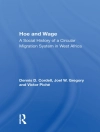Winner of the 2017 Virginia Marie Folkins Award, Association of King County Historical Organizations (AKCHO)
Winner of the 2017 Hal K. Rothman Book Prize, Western History Association
Seattle would not exist without animals. Animals have played a vital role in shaping the city from its founding amid existing indigenous towns in the mid-nineteenth century to the livestock-friendly town of the late nineteenth century to the pet-friendly, livestock-averse modern city.
When newcomers first arrived in the 1850s, they hastened to assemble the familiar cohort of cattle, horses, pigs, chickens, and other animals that defined European agriculture. This, in turn, contributed to the dispossession of the Native residents of the area. However, just as various animals were used to create a Euro-American city, the elimination of these same animals from Seattle was key to the creation of the new middle-class neighborhoods of the twentieth century. As dogs and cats came to symbolize home and family, Seattleites’ relationship with livestock became distant and exploitative, demonstrating the deep social contradictions that characterize the modern American metropolis.
Throughout Seattle’s history, people have sorted animals into categories and into places as a way of asserting power over animals, other people, and property. In The City Is More Than Human, Frederick Brown explores the dynamic, troubled relationship humans have with animals. In so doing he challenges us to acknowledge the role of animals of all sorts in the making and remaking of cities.
Содержание
Foreword | The Animal Turn in Urban History / Paul S. Sutter
Introduction
1. Beavers, Cougars, and Cattle | Constructing the Town and the Wilderness
2. Cows | Closing the Grazing Commons
3. Horses | The Rise and Decline of Urban Equine Workers
4. Dogs and Cats | Loving Pets in Urban Homes
5. Cattle, Pigs, Chickens, and Salmon | Eating Animals on Urban Plates
Conclusion
Acknowledgments
Appendix: Methodology
List of Abbreviations
Notes
Bibliography
Index
Об авторе
Paul Sutter is series editor for the Weyerhaeuser Environmental Books series. He is professor of history at the University of Colorado Boulder. He has published five books, including Driven Wild: How the Fight against Automobiles Launched the Modern Wilderness Movement (University of Washington Press, 2005) and Let Us Now Praise Famous Gullies: Providence Canyon and the Soils of the South (University of Georgia Press, 2015).












